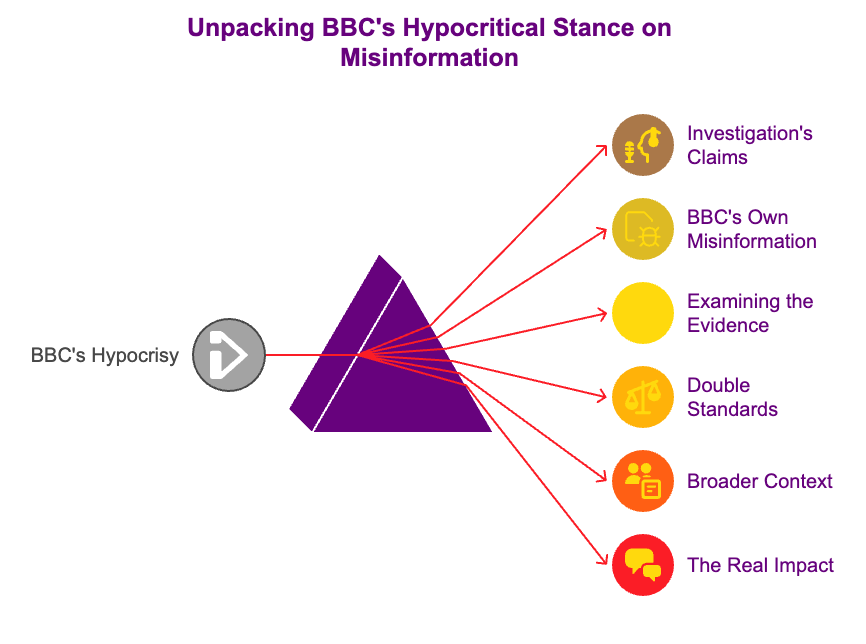BBC's Hypocrisy: Criticizing Health Misinformation While Spreading It
The recent BBC investigation into Steven Bartlett's podcast "The Diary of a CEO" represents a striking case of journalistic hypocrisy.
The recent BBC investigation into Steven Bartlett's podcast "The Diary of a CEO" represents a striking case of journalistic hypocrisy. While claiming to combat health misinformation, the BBC employs the same problematic tactics they criticize.
The Investigation's Claims
The BBC video examines how Bartlett's podcast, originally business-focused, has increasingly covered health topics. The BBC specifically criticizes Bartlett for:
* Rarely challenging guest claims (which if you have watched one, is simply not true)
* Failing to provide context for misleading information (they do offer downloaded information and opposing views to the guests)
* Platforming controversial views without proper scrutiny (which is not true, they pick the guests after a lot of research)
The BBC's Own Misinformation
The BBC's report highlights a guest who claimed ketogenic diets could treat cancer. Professor Thomas Seyfried argues cancer stems from mitochondrial dysfunction rather than genetic mutations, making cancer cells dependent on glucose and glutamine while normal cells can utilize ketones. When contacted by the BBC Professor Seyfried stood by his claims. The BBC video employs shock tactics in the video by emphasizing that alternative medicine users are "six times more likely to die" than those receiving conventional treatment. This alarming statistic deserves closer examination, which ironically did not get questioned by the BBC host!
Examining the Evidence
The study was not referenced by the ‘expert’ but I could track it down due to the sensationalist ‘6 times more likely to die’ comment. In the study we can see significantly more nuanced findings:
Raw Survival Numbers after 84 months (7 years):
* Alternative Medicine Group: 15.4% survival (43 of 280 patients)
* Conventional Treatment Group: 24.7% survival (138 of 559 patients)
* Absolute difference: 9.3% higher survival in conventional treatment
Cancer-Specific Hazard Ratios:
* Breast Cancer: HR = 5.68 (the source of the "six times" claim)
* Colorectal Cancer: HR = 4.57
* Lung Cancer: HR = 2.17
* Prostate Cancer: No statistically significant difference
The phrase "6 times more likely to die" is clearly designed to shock, especially when hazard ratios for other cancers are far lower or nonexistent. This creates a narrative that might unfairly discourage those seeking alternative treatments, particularly prostate cancer patients, where the study shows no evidence that conventional cancer treatment offers a survival advantage.
Panel C (Prostate Cancer)
AM Group:
0 months: 71 started the alternative medicine treatment
12 months: 64
24 months: 60
36 months: 53
48 months: 45
60 months: 37
72 months: 36
84 months: 29 still aliveCCT Group:
0 months: 142 started the conventional cancer treatment
12 months: 136
24 months: 123
36 months: 114
48 months: 104
60 months: 93
72 months: 77
84 months: 59 still alive
Furthermore, those considering alternative approaches often cite concerns over severe side effects of chemotherapy and radiation, yet this study does not address quality of life or long-term survivorship beyond mortality. Cox proportional hazards modeling tends to exaggerate differences between groups by focusing on instantaneous relative risk rather than raw survival differences, making absolute risks seem much larger than they are in reality.
Keep reading with a 7-day free trial
Subscribe to Stephen Thomas BSc (Hons) Substack to keep reading this post and get 7 days of free access to the full post archives.





